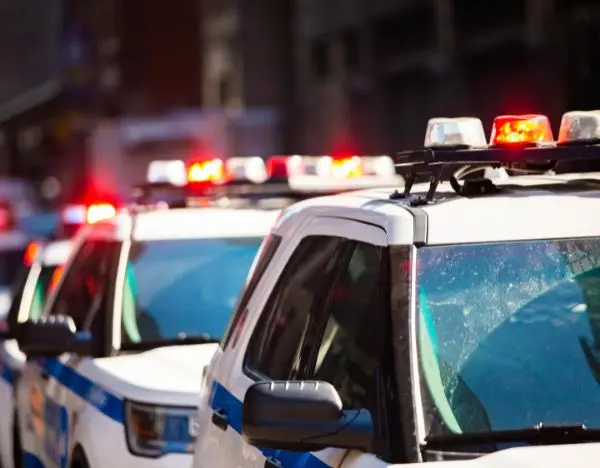New York Civil Rights & Criminal Defense Lawyers
At Sivin, Miller & Roche LLP, we understand that taking a stand against police misconduct is not just about seeking personal justice but also about ensuring that similar violations do not happen to others. If the police have violated your civil rights, you may have grounds to file a lawsuit. Here’s a comprehensive guide on proceeding with a civil rights lawsuit against police officers or a police department.
Your Civil Rights in Police Encounters

When interacting with law enforcement, it’s crucial to understand the civil rights that protect you. These rights are designed to safeguard your freedom and ensure fair legal treatment. Here’s a breakdown of the primary civil rights that are particularly relevant during police encounters:
Right to Equal Protection
Protected by the Fourteenth Amendment, this right ensures that all individuals are treated equally under the law, prohibiting discrimination based on race, gender, national origin, and other characteristics during police interactions.
Right to Due Process
The Fifth and Fourteenth Amendments guarantee your right to fair procedures if you are to be deprived of life, liberty, or property. This includes the right to a fair and public trial if arrested and charged.
Right to Free Speech
Under the First Amendment, you have the right to express yourself, including criticizing police actions, as long as it does not interfere with their duties or escalate to illegal activities like incitement.
Freedom from Unreasonable Searches and Seizures
The Fourth Amendment protects you from unreasonable searches and seizures by law enforcement. With certain exceptions, police need a warrant or probable cause to search your person or property.
Right to Remain Silent
Under the Fifth Amendment, you have the right to remain silent during police interrogations to avoid self-incrimination. You can invoke this right at any time.
Right to an Attorney
The Sixth Amendment ensures your right to legal representation. If you are arrested, you have the right to consult with an attorney and have one present during interrogations.
Freedom from Excessive Force
Your rights under the Fourth Amendment also cover freedom from excessive force during police interactions. The amount of force used must be reasonable in relation to the threat posed during the arrest process.
Right to Peaceful Assembly
The First Amendment protects the right to peacefully assemble and protest, which law enforcement must respect during such events.
Freedom from Discrimination
Federal laws such as the Civil Rights Act of 1964 further protect you from discrimination by law enforcement based on race, color, religion, sex, or national origin.
These rights are vital during police encounters to protect individuals from abuses of power. Knowing your rights can help you navigate interactions with law enforcement more safely and assertively. If you believe your rights have been violated during a police encounter, it may be beneficial to speak with an attorney specializing in civil rights or police misconduct to discuss your options for recourse.
Can I Sue the Police Department for Violating My Rights?
Yes, you can sue the New York City Police Department (NYPD) if you believe that one of its officers has violated your rights. Such lawsuits are typically based on claims of civil rights violations, including excessive force, false arrest, racial profiling, and other forms of misconduct.
How Do I Sue the NYC Police for Violating Civil Rights?
Here’s a step-by-step overview of what this process generally entails:
1. Document the Incident
Gather as much evidence as possible regarding the incident. This includes taking photographs, securing video footage, obtaining medical records if there were injuries, and collecting contact information from witnesses. Detailed documentation can significantly strengthen your case.
2. File a Complaint
Before pursuing a lawsuit, filing a formal complaint with the NYPD’s Internal Affairs Bureau or the Civilian Complaint Review Board (CCRB) is advisable. This step is crucial because it formally records the incident and can be useful in subsequent legal actions.
3. Consult with a Civil Rights Attorney
Engaging an attorney who specializes in civil rights or police misconduct is critical. An experienced lawyer can offer legal advice, evaluate the strength of your case, and guide you through the complex legal processes involved in suing a government entity.
4. Consider the Statute of Limitations
Be aware of the time limits for filing a lawsuit. In New York, civil rights claims typically must be filed within three years of the incident. However, certain claims may have shorter deadlines, so acting quickly is important.
5. File a Notice of Claim
For lawsuits against the NYPD or any city department, a Notice of Claim must be filed within 90 days of the incident. This document notifies the city of your intention to sue and summarizes your claim.
6. Prepare for a Legal Battle
Suing a large entity like the NYPD involves substantial legal challenges. The city’s legal team will likely mount a vigorous defense, so preparing for a tough legal battle is essential.
7. Seek Settlement or Go to Trial
Many civil rights cases are settled out of court. Settlement can provide compensation without the uncertainty of a trial. However, if a satisfactory settlement isn’t reached, the case may go to trial where your attorney will need to prove your claims in front of a judge or jury.
8. Pursue Justice and Reform
While the primary goal of such lawsuits is to seek compensation for the wrongs suffered, they can also effectuate change. Successful cases can lead to policy changes within the NYPD, promoting better practices and accountability.
Suing the NYPD for a violation of your rights is a serious undertaking that requires careful preparation and professional legal representation. Such actions not only seek redress for individual grievances but can also contribute to broader efforts to ensure accountability and justice within the police department.
How a NYC Police Misconduct Lawyer Can Help
At Sivin, Miller & Roche LLP, we specialize in handling police misconduct cases in New York City. We understand how daunting it can be to stand up against law enforcement abuses, and our experienced team is here to guide and support you through the legal process. Here’s how our attorneys can help if you’ve been a victim of police misconduct:
Experienced Legal Representation
Our lawyers have extensive knowledge and experience in civil rights law, particularly with issues surrounding police misconduct. We provide experienced legal representation from the initial consultation to the resolution of your case, whether that involves negotiating a settlement or representing you in court.
Comprehensive Case Evaluation
We start by offering a comprehensive evaluation of your case. We take the time to listen to your story and understand the details of the incident. We assess the strength of your case based on the evidence, including witness statements, video footage, medical records, and any official reports.
Strategic Case Building
Building a strong case is crucial. Our team diligently compiles evidence, secures expert testimonies if necessary, and constructs a compelling legal strategy. We focus on how your rights were violated and identify the best legal paths to pursue justice and compensation.
Filing Necessary Paperwork
Dealing with the legal paperwork can be overwhelming. Our civil rights attorneys handle all aspects of the filing process, including drafting and submitting all necessary documents, such as the Notice of Claim, which is required when suing a municipal entity like the NYPD.
Skilled Negotiation
Many police misconduct cases are settled out of court. Our lawyers are skilled negotiators striving to reach a settlement that adequately compensates you for your experiences without needing a prolonged court case. We aim to achieve a resolution addressing your damages and any necessary policy changes.
Aggressive Advocacy in Court
If your case goes to trial, you can count on our vigorous representation in court. We are committed to advocating passionately on your behalf, using our deep understanding of civil rights laws to argue your case effectively before a judge and jury.
Guidance Through the Legal Process
We ensure you are fully informed and comfortable with the proceedings throughout the legal process. We explain each step, offer regular updates, and are always available to answer your questions and address your concerns.
Support Beyond the Courtroom
Our support extends beyond legal representation. We understand the emotional and psychological impacts of police misconduct and can refer you to professional counseling and support groups if needed.
Signs NYC Police May Have Violated Your Civil Rights
Recognizing the signs of civil rights violations by the New York City Police (NYPD) is crucial for protecting yourself and understanding when to take legal action. Here are some indicators that your civil rights may have been violated:
- Excessive Force: Unnecessary physical harm or use of weapons during an interaction.
- Unlawful Search and Seizure: Searches of your property without a warrant, probable cause, or your consent.
- False Arrest: Being arrested without probable cause or a necessary warrant.
- Racial Profiling: Detainment or searches based primarily on race, ethnicity, religion, or national origin.
- Denial of Medical Assistance: Refusal by police to allow access to medical care when needed.
- Coerced Confessions: Being pressured into a confession through threats, physical harm, or deception.
- Freedom of Speech Violations: Punishment or detainment for legally recording police, criticizing police actions, or participating in legal protests.
- Denial of Right to Counsel: Not being allowed to contact a lawyer after requesting one during or after an arrest.
- Improper Detention: Being held in custody without being charged or given a justification for an extended period.
If you experience any of these signs during or following an encounter with the NYPD, consider contacting a civil rights attorney to explore your legal options.
Compensation You May Be Entitled To
If you have experienced a violation of your civil rights by the police, you may be entitled to various forms of compensation. Understanding the types of compensation available can help you seek the appropriate redress for the harms you’ve suffered. Here’s a breakdown:
Compensatory Damages
- Medical Expenses: Covers past and future medical treatments related to injuries sustained during the incident.
- Lost Wages: Reimburses lost earnings due to the inability to work, both presently and projected into the future if applicable.
- Pain and Suffering: Compensation for physical pain and emotional distress resulting from the incident.
- Loss of Quality of Life: Covers changes to your lifestyle, including inability to engage in hobbies or activities you previously enjoyed.
Punitive Damages
These are awarded to punish the wrongdoer when their actions are found to be especially harmful or executed with malicious intent. Not all cases qualify for punitive damages, as they require a higher standard of proof.
Legal Fees and Costs
If successful, you may also recover the costs of pursuing the lawsuit, including attorney fees and expenses incurred during the legal process.
Injunctive Relief
While not a direct form of monetary compensation, injunctive relief can be crucial. It may involve orders to change policies or conduct within a police department to prevent future misconduct.
Nominal Damages
Awarded when a violation has occurred, but the plaintiff did not suffer any actual damages. These serve as a recognition that your rights were violated.
Special Considerations
- Statute of Limitations: Be aware of time limits for filing civil rights claims, so prompt action is essential.
- Documentation: Effective documentation of the incident and its impacts on your life is vital for substantiating any claim for damages.
If you believe law enforcement has violated your rights, it is advisable to consult with a skilled civil rights attorney who can evaluate your case and guide you through the process of securing just compensation.
Ready to Stand Up for Your Rights? Contact Us Today!
If you believe the police have violated your civil rights, don’t wait to seek justice. At Sivin, Miller & Roche LLP, we are dedicated to defending your rights and helping you receive the compensation you deserve. Contact us now for a confidential consultation and take the first step towards holding those responsible accountable.
Suing NYC Police FAQs
If you’re considering legal action against the New York City Police Department (NYPD) for misconduct or civil rights violations, here are answers to some frequently asked questions that can help guide your decisions:
1. Can I sue the NYPD for police misconduct?
Yes, if you believe that your rights were violated due to police misconduct, such as excessive force, false arrest, or discrimination, you can file a lawsuit against the NYPD.
2. What do I need to sue the NYPD?
To initiate a lawsuit, you will need substantial evidence of the misconduct. This includes any medical records for injuries, witness statements, videos or photos, and a detailed account of what happened.
3. How long do I have to file a lawsuit against the NYPD?
Generally, you must file a Notice of Claim within 90 days of the incident. After this, you have up to one year and 90 days from the incident date to file a lawsuit.
4. What kind of compensation can I receive if I sue the NYPD?
Compensation might include damages for medical expenses, lost wages, pain and suffering, and emotional distress. In certain cases, punitive damages may also be awarded.
5. What is a Notice of Claim?
A Notice of Claim is a document that must be filed before suing any municipal agency in New York, including the NYPD. It notifies the city of your intention to file a lawsuit and outlines the basic facts of your case.
6. Do I need a lawyer to sue the NYPD?
While not legally required, it is highly advisable to work with an attorney who has experience with civil rights and police misconduct cases. These cases can be complex and challenging, and a knowledgeable attorney can help navigate the legal system and improve your chances of a favorable outcome.
7. What happens after I file a lawsuit?
After filing, the case enters a discovery phase, where both sides exchange information and evidence. There may be depositions, and your attorney will prepare for possible settlement negotiations or a trial.
8. Can the NYPD settle my lawsuit out of court?
Yes, many lawsuits against the NYPD are settled out of court. Your attorney can negotiate a settlement on your behalf, which may provide compensation without needing a trial.
9. What should I do if I’m unsure whether my rights were violated?
If you’re unsure, it’s beneficial to consult with a civil rights attorney who can evaluate the specifics of your case and advise you on the best course of action.
Take Action with Sivin, Miller & Roche LLP
If you believe you’ve been a victim of NYPD misconduct, don’t hesitate to seek legal guidance. At Sivin, Miller & Roche LLP, we’re committed to advocating for your rights and helping you pursue the justice and compensation you deserve. Contact us today to schedule a consultation and discuss your case.
Tell Us About Your Case
Fields marked with an * are required
"*" indicates required fields



